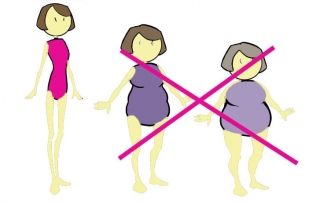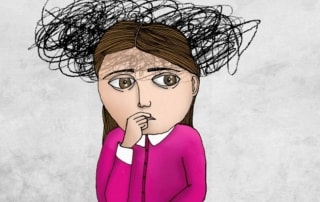Weight Gain
Whether it’s crept up on you over the years or you’ve gained weight after an injury or stressful time in your life, weight gain can be reversed.
Causes of Weight Gain
Most people’s weight gain is due to eating and drinking more calories than they burn.
But what’s the real cause or underlying reason for your weight gain?
Food that’s labelled ‘low-fat’
In some cases, low-fat foods contain high levels of sugar. High-sugar foods can also contain lots of calories and so contribute to weight gain.
Television Binge Watchers
Watching a lot of television can contribute to an inactive lifestyle, and many of us consume calories we don’t need while watching TV.
Medication
Weight gain is a common side effect of many drugs. The most common drugs that can cause weight gain are steroids, antipsychotic drugs, and insulin, among others.
But it’s really important not to stop taking prescribed medication unless your Doctor has said so.
Late nights
Some research suggests that a lack of sleep can contribute to weight gain.
Good manners
In an ideal world, friends and family would encourage you to lose extra weight. In reality, they sometimes push you to eat more high-calorie food helping with weight gain instead.
Portion size
Over the last few decades, portions in restaurants and supermarket packages have increased. When we’re given a larger portion we tend to eat more. Check out our article on low calorie dining out.
Underactive thyroid
An underactive thyroid (hypothyroidism) means your thyroid gland is not producing enough thyroid hormones, which play a central role in regulating your metabolism.
Diabetes treatment
Weight gain is a common side effect for people who take insulin to manage their diabetes. Insulin helps to control your blood sugar level. Some people with longstanding diabetes tend to eat more than they need to prevent low blood sugar, also known as a “hypo” or hypoglycaemia.
Age
You begin to lose modest amounts of muscle as you get older, largely because you become less active. Muscles are an efficient calorie burner, so a loss of muscle mass can mean you burn fewer calories. If you’re eating and drinking the same amount as you always have and are less physically active, this can lead to weight gain.
Hormones and the Menopause
As you get older and into the menopause and beyond, your weight gain could be the result of hormones playing havoc with your metabolism, your stress levels and your mood. They can even impact your sleep all factors linked to weight gain
Steroid treatment
Steroids, also known as corticosteroids, are used to treat a variety of conditions, including asthma and arthritis. Long-term use of corticosteroid tablets seems to increase appetite in some people, leading to weight gain.
Cushing’s syndrome
Cushing’s syndrome is very rare, affecting around 1 in 50,000 people, and is caused by high levels of the hormone cortisol. It can develop as a side effect of long-term steroid treatment (iatogenic Cushing’s syndrome) or as a result of a tumour (endogenous Cushing’s syndrome). Weight gain is a common symptom, particularly on the chest, face and stomach.
Stress and low mood
People respond differently to stress, anxiety and depressed mood. Some people may lose weight, while others may gain weight due to stress. “People can turn to food as a coping mechanism,” says Collins. “It can lead to a vicious circle. Weight gain from depression can make you more depressed, which can lead to further weight gain. If you know you’re an emotional eater, you need to find other forms of distraction, such as exercise or a hobby, calling a friend, going for a walk or having a soothing bath.”
Tiredness
Some studies have shown that people who sleep less than seven hours a day are more likely to be overweight than those who get nine hours of sleep or more. It’s not clear why, but one theory is that sleep-deprived people have reduced levels of leptin, the chemical that makes you feel full, and higher levels of ghrelin, the hunger-stimulating hormone.
Fluid retention
Fluid retention (oedema) causes parts of the body to become swollen, which translates into weight gain. This gain is caused by fluid accumulating in the body. Some types of fluid retention are common – for example, if you’re standing for long periods or are pre-menstrual. The swelling can occur in one particular part of the body, such as the ankles, or it can be more general.
Polycystic ovary syndrome (PCOS)
PCOS is a common condition that affects how a woman’s ovaries work. Symptoms can include irregular periods, trouble getting pregnant, excess hair and gaining weight.



